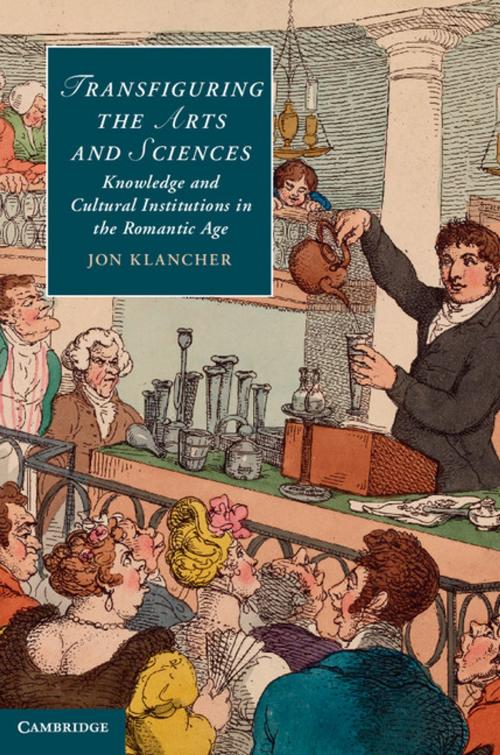Transfiguring the Arts and Sciences
Knowledge and Cultural Institutions in the Romantic Age
Fiction & Literature, Literary Theory & Criticism, British, Nonfiction, Social & Cultural Studies, Social Science| Author: | Jon Klancher | ISBN: | 9781107461208 |
| Publisher: | Cambridge University Press | Publication: | August 1, 2013 |
| Imprint: | Cambridge University Press | Language: | English |
| Author: | Jon Klancher |
| ISBN: | 9781107461208 |
| Publisher: | Cambridge University Press |
| Publication: | August 1, 2013 |
| Imprint: | Cambridge University Press |
| Language: | English |
In this important and innovative study, Jon Klancher shows how the Romantic age produced a new discourse of the 'Arts and Sciences' by reconfiguring the Enlightenment's idea of knowledge and by creating new kinds of cultural institutions with unprecedented public impact. He investigates the work of poets, lecturers, moral philosophers, scientists and literary critics - including Coleridge, Godwin, Bentham, Davy, Wordsworth, Robinson, Shelley and Hunt - and traces their response to book collectors and bibliographers, art-and-science administrators, painters, engravers, natural philosophers, radical journalists, editors and reviewers. Taking a historical and cross-disciplinary approach, he opens up Romantic literary and critical writing to transformations in the history of science, history of the book, art history, and the little-known history of arts-and-sciences administration that linked early-modern projects to nineteenth- and twentieth-century modes of organizing 'knowledges'. His conclusions transform the ways we think about knowledge, both in the Romantic period and in our own.
In this important and innovative study, Jon Klancher shows how the Romantic age produced a new discourse of the 'Arts and Sciences' by reconfiguring the Enlightenment's idea of knowledge and by creating new kinds of cultural institutions with unprecedented public impact. He investigates the work of poets, lecturers, moral philosophers, scientists and literary critics - including Coleridge, Godwin, Bentham, Davy, Wordsworth, Robinson, Shelley and Hunt - and traces their response to book collectors and bibliographers, art-and-science administrators, painters, engravers, natural philosophers, radical journalists, editors and reviewers. Taking a historical and cross-disciplinary approach, he opens up Romantic literary and critical writing to transformations in the history of science, history of the book, art history, and the little-known history of arts-and-sciences administration that linked early-modern projects to nineteenth- and twentieth-century modes of organizing 'knowledges'. His conclusions transform the ways we think about knowledge, both in the Romantic period and in our own.















